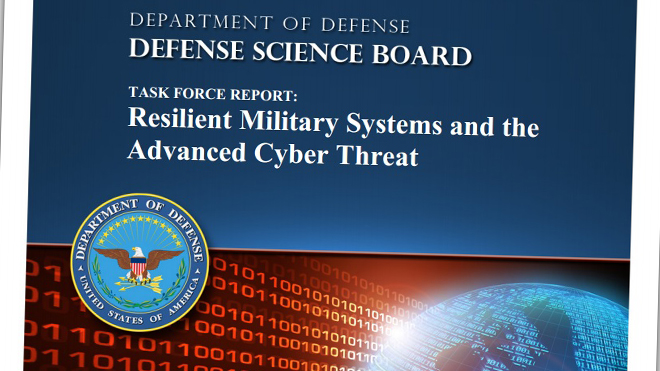
From Global Security Newswire: The Senate Armed Services Committee wants the Defense Department to undertake an audit of its missile defense systems to see what, if any, technologies are vulnerable to cyber strikes, Inside Defense reported on Tuesday.
The panel report, released alongside its markup of the fiscal 2014 defense authorization legislation, calls for "every critical system" — including "satellites and missile defense systems" — to be examined for vulnerabilities that could be exploited through digital attacks.
From Library of Congress: As highlighted in a January 2013 report by the Defense Science Board, DOD’s dependence upon networked systems and components serves as `a magnet to U.S. opponents’ and if left unaddressed, threatens our core warfighting capabilities. Every critical system from ground vehicle electronic systems and next generation aircraft to satellites and missile defense systems must be assessed to ensure that critical warfighting capabilities are not undermined and that the same level of emphasis placed on developmental and operational security in the physical domain be adequately addressed and applied in the cyber domain.
Excerpt from Senate Report 113-044 on the 2014 National Defense Authorization Act.
From Global Security Newswire: Schematics for U.S. ballistic missile defense systems have been among the weapons designs targeted by Chinese cyber assaults, the Washington Post reported on Sunday, citing a new report from the Pentagon’s Defense Science Board.
The extensive list of targets includes designs for the Patriot Advanced Capability 3, the Terminal High-Altitude Area Defense system, the Aegis Ballistic Missile Defense System, and several iterations of the Standard Missile interceptor. . . .
"If they have a better sense of a THAAD design or PAC-3 design, then that increases the potential of their ballistic missiles being able to penetrate our or our allies’ missile defenses," said Mark Stokes, executive director of the Project 2049 Institute. (graphic: Department of Defense)
UPDATE From Library of Congress: The provision recommended by the committee would require the Secretary to designate a Senate-confirmed official within the Under Secretary of Defense for Policy with the responsibility for oversight, and resource management of offensive cyber forces, including the national mission teams that will defend the nation by operating external to U.S. networks.
Image: DoD%206%2027%2013%20Defense%20Science%20Board%20Report.jpg
